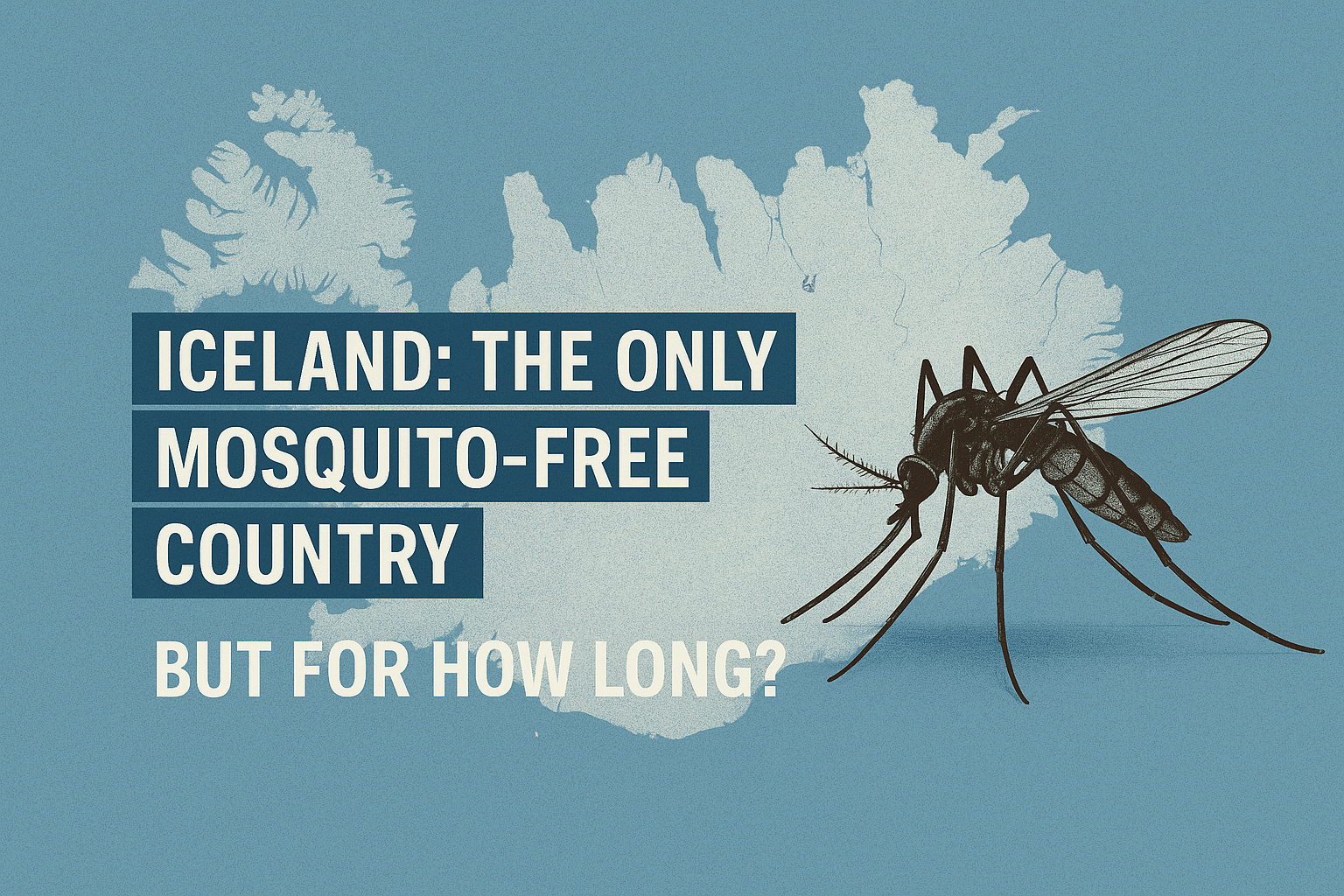Iceland: The Only Mosquito-Free Country—But For How Long?

While mosquitoes are found on nearly every continent, one country has managed to remain remarkably mosquito-free: Iceland.
Despite its proximity to mosquito-prone regions like Norway, Scotland, and Greenland, Iceland’s unique freeze-thaw climate has made it nearly impossible for mosquito populations to take hold. Scientists believe it’s not due to a lack of mosquito introductions—mosquitoes have arrived via international flights—but rather the island’s harsh and variable weather that disrupts the mosquito life cycle.
Mosquitoes require stable bodies of unfrozen water to develop from egg to adult. In Iceland, unpredictable freeze-melt cycles in the spring and fall often kill mosquito larvae before they can mature. Even the country’s warm geothermal pools appear unsuitable due to their chemical composition and high temperatures.
But experts warn this status may not last. With climate change causing warmer springs and longer warm seasons, the conditions could shift enough to allow mosquitoes to establish permanent populations—even in Iceland.
For now, the island remains a rare refuge. But the lesson is clear: mosquitoes are adaptable, and climate patterns play a major role in how far they can spread. As tropical mosquito species like Aedes aegypti expand their range northward in the U.S. and Europe, global vigilance is more important than ever.
🦟 Did you know? Hawaii was once mosquito-free too—until mosquitoes arrived by ship in 1826. Today, they're found statewide.
Stay protected wherever you are:
- Dump standing water around your home weekly
- Use EPA-approved repellent
- Wear long sleeves when outdoors during dusk or dawn
Learn more: westnile.ca.gov
